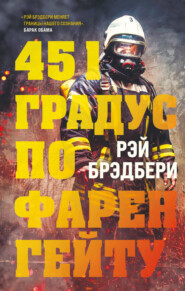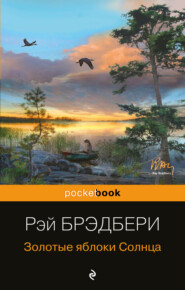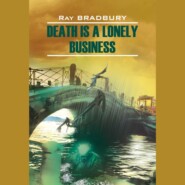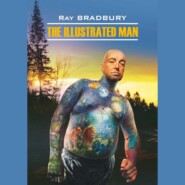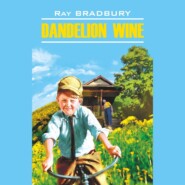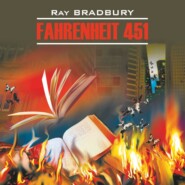По всем вопросам обращайтесь на: info@litportal.ru
(©) 2003-2024.
✖
Ray Bradbury Stories Volume 1
Настройки чтения
Размер шрифта
Высота строк
Поля
For, you see, it is all mulch. If I hadn’t stuffed my eyes and stuffed my head with all of the above for a lifetime, when it came round to word associating myself into story ideas, I would have brought up a ton of ciphers and a half-ton of zeros.
‘The Veldt,’ collected herein, is a prime example of what goes on in a headful of images, myths, toys. Back some thirty years ago I sat down to my typewriter one day and wrote these words: ‘The Playroom.’ Playroom where? The Past? No. The Present? Hardly. The Future? Yes! Well, then, what would a Playroom in some future year be like? I began typing, word associating around the Room. Such a Playroom must have wall-to-wall television in each wall, and in the ceiling. Walking into such an environment, a child could shout: River Nile! Sphinx! Pyramids! and they would appear, surrounding him, in full color, full sound, and, why not? glorious warm scents and smells and odors, pick one, for the nose!
All this came to me in a few seconds of fast typing. I knew the Room, now I must put characters in the Room. I typed out a character named George, brought him into a future-time kitchen, where his wife turned and said:
‘George, I wish you’d look at the Playroom. I think it’s broken—’
George and his wife go down the hall. I follow them, typing madly, not knowing what will happen next. They open the door of the Playroom and step in.
Africa. Hot sun. Vultures. Dead meats. Lions.
Two hours later the lions leaped out of the walls of the Playroom and devoured George and his wife, while their TV-dominated children sat by and sipped tea.
End of word-association. End of story. The whole thing complete and almost ready to send out, an explosion of idea, in something like 120 minutes.
The lions in that room, where did they come from?
From the lions I found in the books in the town library when I was ten. From the lions I saw in the real circuses when I was five. From the lion that prowled in Lon Chaney’s film He Who Gets Slapped in 1924!
1924! you say, with immense doubt. Yes, 1924. I didn’t see the Chaney film again until a year ago. As soon as it flashed on the screen I knew that that was where my lions in ‘The Veldt’ came from. They had been hiding out, waiting, given shelter by my intuitive self, all these years.
For I am that special freak, the man with the child inside who remembers all. I remember the day and the hour I was born. I remember being circumcised on the second day after my birth. I remember suckling at my mother’s breast. Years later I asked my mother about the circumcision. I had information that couldn’t have been told me, there would be no reason to tell a child, especially in those still-Victorian times. Was I circumcised somewhere away from the lying-in hospital? I was. My father took me to the doctor’s office. I remember the doctor. I remember the scalpel.
I wrote the story ‘The Small Assassin’ twenty-six years later. It tells of a baby born with all its senses operative, filled with terror at being thrust out into a cold world, and taking revenge on its parents by crawling secretly about at night and at last destroying them.
When did it all really begin? The writing, that is. Everything came together in the summer and fall and early winter of 1932. By that time I was stuffed full of Buck Rogers, the novels of Edgar Rice Burroughs, and the night-time radio serial Chandu the Magician. Chandu said magic and the psychic summons and the Far East and strange places which made me sit down every night and from memory write out the scripts of each show.
But the whole conglomeration of magic and myths and falling downstairs with brontosaurs only to arise with La of Opar, was shaken into a pattern by one man, Mr Electrico.
He arrived with a seedy two-bit carnival. The Dill Brothers Combined Shows, during Labor Day weekend of 1932, when I was twelve. Every night for three nights, Mr Electrico sat in his electric chair, being fired with ten billion volts of pure blue sizzling power. Reaching out into the audience, his eyes flaming, his white hair standing on end, sparks leaping between his smiling teeth, he brushed an Excalibur sword over the heads of the children, knighting them with fire. When he came to me, he tapped me on both shoulders and then the tip of my nose. The lightning jumped into me, Mr Electrico cried: ‘Live forever!’
I decided that was the greatest idea I had ever heard. I went to see Mr Electrico the next day, with the excuse that a nickel magic trick I had purchased from him wasn’t in working order. He fixed it, and toured me around the tents, shouting at each, ‘Clean up your language,’ before we entered to meet the dwarfs, acrobats, fat women, and Illustrated Men waiting there.
We walked down to sit by Lake Michigan where Mr Electrico spoke his small philosophies and I talked my big ones. Why he put up with me, I’ll never know. But he listened, or it seemed he listened, maybe because he was far from home, maybe because he had a son somewhere in the world, or had no son at all and wanted one. Anyway he was a defrocked Presbyterian minister, he said, and lived down in Cairo, Illinois, and I could write him there, any time I wished.
Finally he gave me some special news.
‘We’ve met before,’ he said. ‘You were my best friend in France in 1918, and you died in my arms in the battle of the Ardennes forest that year. And here you are, born again, in a new body, with a new name. Welcome back!’
I staggered away from that encounter with Mr Electrico wonderfully uplifted by two gifts: the gift of having lived once before (and of being told about it) … and the gift of trying somehow to live forever.
A few weeks later I started writing my first short stories about the planet Mars. From that time to this, I have never stopped. God bless Mr Electrico, the catalyst, wherever he is.
If I consider every aspect of all the above, my beginnings almost inevitably had to be in the attic. From the time I was twelve until I was twenty-two or three, I wrote stories long after midnight – unconventional stories of ghosts and haunts and things in jars that I had seen in sour armpit carnivals, of friends lost to the tides in lakes, and of consorts of three in the morning, those souls who had to fly in the dark in order not to be shot in the sun.
It took me many years to write myself down out of the attic, where I had to make do with my own eventual mortality (a teenager’s preoccupation), make it to the living room, then out to the lawn and sunlight where the dandelions had come up, ready for wine.
Getting out on the front lawn with my Fourth of July relatives gave me not only my Green Town, Illinois, stories, it also shoved me off toward Mars, following Edgar Rice Burroughs’ and John Carter’s advice, taking my childhood luggage, my uncles, aunts, my mom, dad, and brother with me. When I arrived on Mars I found them, in fact, waiting for me, or Martians who looked like them, pretending me into a grave. The Green Town stories that found their way into an accidental novel titled Dandelion Wine and the Red Planet stories that blundered into another accidental novel called The Martian Chronicles were written, alternately, during the same years that I ran to the rainbarrel outside my grandparents’ house to dip out all the memories, the myths, the word-associations of other years.
Along the way, I also re-created my relatives as vampires who inhabited a town similar to the one in Dandelion Wine, dark first cousin to the town on Mars where the Third Expedition expired. So, I had my life three ways, as town explorer, space-traveler, and wanderer with Count Dracula’s American cousins.
I realize I haven’t talked half enough, as yet, about one variety of creature you will find stalking this collection, rising here in nightmares to founder there in loneliness and despair: dinosaurs. From the time I was seventeen until I was thirty-two. I wrote some half-dozen dinosaur stories.
One night when my wife and I were walking along the beach in Venice. California, where we lived in a thirty-dollar-a-month newlyweds’ apartment, we came upon the bones of the Venice Pier and the struts, tracks, and ties of the ancient roller-coaster collapsed on the sand and being eaten by the sea.
‘What’s that dinosaur doing lying here on the beach?’ I said.
My wife, very wisely, had no answer.
The answer came the next night when, summoned from sleep by a voice calling, I rose up, listened, and heard the lonely voice of the Santa Monica bay fog horn blowing over and over and over again.
Of course! I thought. The dinosaur heard that lighthouse fog horn blowing, thought it was another dinosaur arisen from the deep past, came swimming in for a loving confrontation, discovered it was only a fog horn, and died of a broken heart there on the shore.
I leaped from bed, wrote the story, and sent it to the Saturday Evening Post that week, where it appeared soon after under the title ‘The Beast from 20,000 Fathoms.’ That story, titled ‘The Fog Horn’ in this collection, became a film two years later.
The story was read by John Huston in 1953, who promptly called to ask if I would like to write the screenplay for his film Moby Dick. I accepted, and moved from one beast to the next.
Because of Moby Dick, I reexamined the life of Melville and Jules Verne, compared their mad captains in an essay written to reintroduce a new translation of 20,000 Leagues Benath the Sea, which, read by the 1964 New York World’s Fair people, put me in charge of conceptualizing the entire upper floor of the United States Pavilion.
Because of the Pavilion, the Disney organization hired me to help plan the dreams that went into Spaceship Earth, part of Epcot, a permanent world’s fair, now building to open in 1982. In that one building, I have crammed a history of mankind, coming and going back and forth in time, then plunging into our wild future in space.
Including dinosaurs.
All of my activities, all of my growing, all of my new jobs and new loves, caused and created by that original primitive love of the beasts I saw when I was five and dearly cherished when I was twenty and twentynine and thirty.
Look around among these stories and you will probably find only one or two that actually happened to me. I have resisted, most of my life, being given assignments to go somewhere and ‘sponge up’ the local color, the natives, the look and feel of the land. I learned long ago that I am not seeing directly, that my subconscious is doing most of the ‘sponging’ and it will be years before any usable impressions surface.
As a young man I lived in a tenement in the Chicano section of Los Angeles. Most of my Latino stories were written years after I had moved from the tenement, with one terrifying, on-the-spot, exception. In late 1945, with World War II freshly over, a friend of mine asked me to accompany him to Mexico City in an old beat-up Ford V-8. I reminded him of the vow of poverty that circumstances had forced on me. He rebutted by calling me a coward, wondering why I didn’t rev up my courage and send out three or four stories which I had hidden away. Reason for the hiding: the stories had been rejected once or twice by various magazines. Pummeled by my friend, I dusted the stories off and mailed them out, under the pseudonym William Elliott. Why the pseudonym? Because I feared that some Manhattan editors might have seen the name Bradbury on the covers of Weird Tales and would be prejudiced against this ‘pulp’ writer.
I mailed off three short stories to three different magazines, in the second week of August 1945. On August 20, I sold one story to Charm, on August 21, I sold a story to Mademoiselle, and on August 22, my twenty-fifth birthday, I sold a story to Collier’s. The total monies amounted to $1,000, which would be like having $10,000 arrive in the mail today.
I was rich. Or so close to it I was dumbfounded. It was a turning point in my life, of course, and I hastened to write to the editors of those three magazines confessing my true name.
All three stories were listed in The Best American Short Stories of 1946 by Martha Foley, and one of them was published in Herschel Brickell’s O. Henry Memorial Award Prize Stories the following year.
That money took me to Mexico, to Guanajuato, and the mummies in the catacombs. The experience so wounded and terrified me, I could hardly wait to flee Mexico. I had nightmares about dying and having to remain in the halls of the dead with those propped and wired bodies. In order to purge my terror, instantly, I wrote ‘The Next in Line.’ One of the few times that an experience yielded results almost on the spot.
Enough of Mexico. What about Ireland?
There is every kind of Irish story here because after living in Dublin for six months I saw that most of the Irish I met had a variety of ways of making do with that dreadful beast Reality. You can run into it head-on, which is a dire business, or you can skirt around it, give it a poke, dance for it, make up a song, write you a tale, prolong the gab, fill up the flask. Each partakes of Irish cliché, but each, in the foul weather and the foundered politics, is true.
I got to know every beggar in the streets of Dublin, the ones near O’Connell’s Bridge with maniac pianolas grinding more coffee than tunes and the ones who loaned out a single baby among a whole tribe of rain soaked mendicants, so you saw the babe one hour at the top of Grafton Street and the next by the Royal Hibernian Hotel, and at midnight down by the river, but I never thought I would write of them. Then the need to howl and give an angry weep made me rear up one night and write ‘McGillahee’s Brat’ out of terrible suspicions and the begging of a rainwalking ghost that had to be laid. I visited some of the old burnt-out estates of the great Irish landowners, and heard tales of one ‘burning’ that had not quite come off, and so wrote ‘The Terrible Conflagration up at the Place.’
‘The Anthem Sprinters,’ another Irish encounter, wrote itself down years later when, one rainy night, I recalled the countless times my wife and I had sprinted out of Dublin cinemas, dashing for the exit, knocking children and old folks to left and right, in order to make it to the exit before the National Anthem was played.
But how did I begin? Starting in Mr Electrico’s year, I wrote a thousand words a day. For ten years I wrote at least one short story a week, somehow guessing that a day would finally come when I truly got out of the way and let it happen.
The day came in 1942 when I wrote ‘The Lake.’ Ten years of doing everything wrong suddenly became the right idea, the right scene, the right characters, the right day, the right creative time. I wrote the story sitting outside, with my typewriter, on the lawn. At the end of an hour the story was finished, the hair on the back of my neck was standing up, and I was in tears. I knew I had written the first really good story of my life.






